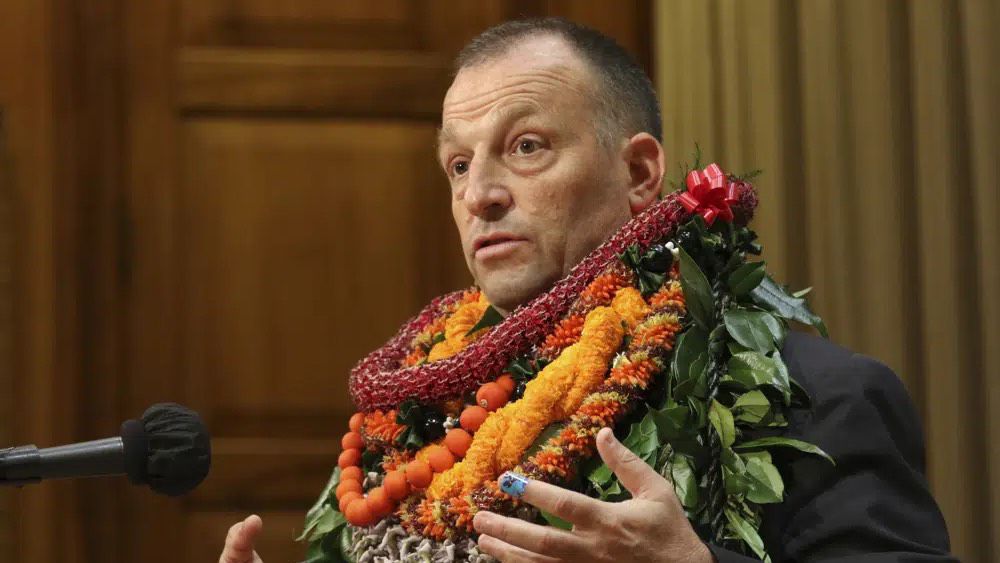Gov. Josh Green amended the emergency proclamation on homelessness he signed during his State of the State address to clarify that processes must be followed to ensure safety and protect environmental and cultural resources.
Green surprised lawmakers and guests on Monday when he produced and signed the proclamation in the middle of his address to the state Legislature. The proclamation suspended nearly 30 statutes and regulations to streamline the development of kauhale (time-home communities) for people who are homeless or at risk of becoming homeless.
On Thursday, Green amended the proclamation, reiterating the need for immediate emergency housing but also affirming the necessity of developing a process to guide how projects would qualify and how “basic considerations of life-safety, the environment, culture or other considerations” would be addressed.
The amended proclamation includes the statement, “The creation of more permanent affordable housing, permanent supportive housing, transitional housing and shelter space is necessary to protect the health, safety and welfare not only for individuals experiencing homelessness but for all residents of the state, but it must be done in a way that is respectful to our environment, our history and our iwi kupuna.”
Green noted that the proclamation he signed on Monday was modeled after an earlier proclamation, in effect from 2015 to 2020, that did not identify or otherwise address such protections.
“My intention in signing the emergency proclamation was always to protect sacred sites, iwi kupuna and the environment while building kauhale and working towards aggressively ending chronic homelessness and unsheltered suffering statewide,” Green said in a statement released on Thursday. “To do this, we must take bold but thoughtful action.”
Green said the amended proclamation reflects “guardrails that will ensure we don’t have to choose between our kuleana to culture and land, and our responsibility to the people who are most vulnerable in our communities.”
His administration is developing rules for how that process will work.
James Koshiba, the governor’s coordinator on homelessness, emphasized that the suspension of certain regulations is specific to projects targeted to the state’s homeless population and would not be exploited by for-profit developers.
“The proclamation does not signal a free-for-all, for developers,” Koshiba said. “Construction projects designed to serve and house the houseless are deeply unprofitable and are unattractive to for-profit developers.”
Projects developed during the 2015 to 2020 Emergency Proclamation period were largely led by counties or the state, using public funding. Few private nonprofit developers participated because the process is costly and difficult, even with the exemptions, according to the governor’s office.
The amended emergency proclamation expires March 20, the same end date as the original document.
Michael Tsai covers local and state politics for Spectrum News Hawaii.



